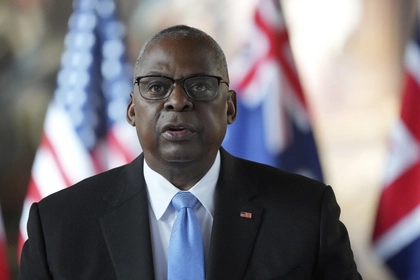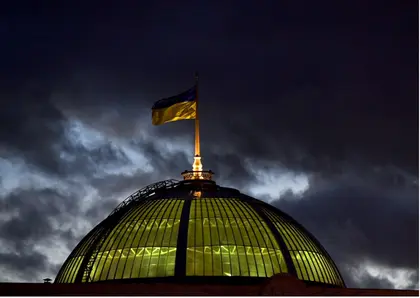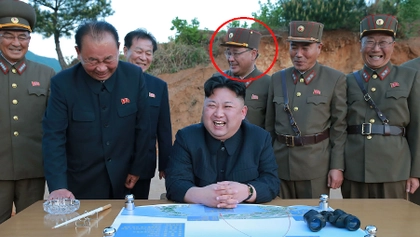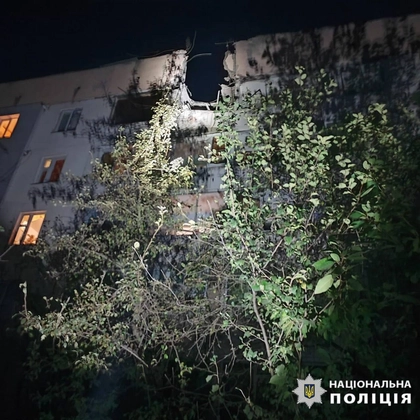Even as Ukraine’s air defense fends off Russian missile attacks, Kyiv must grapple with the question of what comes after the war and what role those who have, at least at some point, been pro-Russian, will play in government.
It’s a question Ukraine’s parliament, the Verkhovna Rada, is now dealing with. Specifically, if someone was elected as an MP from a pro-Russian political, should they have a future in the Ukrainian government?
JOIN US ON TELEGRAM
Follow our coverage of the war on the @Kyivpost_official.
The Verkhovna Rada. (Photo: Ukrainian Presidential Press Service)
The Verkhovna Rada’s decision is likely to be influenced by the country’s desire to join the EU – something Ukraine has made a lot of progress toward and something enshrined in Ukraine’s constitution – and therefore, will also be influenced by the recommendations of organizations like the Venice Commission, which have the power to open the doors to membership – and which issued an opinion on Oct. 9 that was critical of a draft law that the parliament is now considering.

Pentagon Chief in Kyiv on Solidarity Visit
The pro-Russian politicians
Before Russia’s full-scale invasion on Feb. 24, 2022, pro-Russian political parties had a small, but non-negligible presence in Ukraine. Among them were the Opposition Platform for Life (OPFL), the Party of Shariy, and Nashi.
Most of the pro-Russian parties failed to get their candidates elected but some enjoyed some success. The biggest, OPFL, had 44 seats in Ukraine’s 450-seat parliament before Russia’s full-scale invasion.
After the full-scale invasion, six members of OPFL lost their mandates due to accusations of treason, some moved abroad, and some are still serving in the government.
While martial law is in place, the constitution cannot be changed and no elections can be held, so even if a currently serving deputy is deeply unpopular, unless they’ve been found to have committed a crime, their position in the Verkhovna Rada is secure.
One of OPFL’s founders was the pro-Russian oligarch Viktor Medvedchuk – who owned the Ukrainian TV channels NewsOne, Zik, and Channel 112 – and who was such a close friend to President Vladimir Putin, that he named the Russian president godfather to his daughter.
Viktor Medvedchuk and Vladimir Putin (Photo: Mikhail Klimentyev / Sputnik / AFP)
In 2021, Medvedchuk was accused of high treason, attempting to steal natural resources from Crimea while it was under Russian occupation, and of handing Ukrainian military secrets to Moscow.
He was captured in April 2022 by Ukraine’s special services after fleeing home arrest when Russia invaded but was handed over to Moscow in a prisoner swap five months later.
While no member of a pro-Russia party was charged with the crime of having been in a pro-Russia political party, after Russia’s full-scale invasion on Feb. 24, 2022, 11 political parties were banned and some members were arrested after Ukrainian intelligence found that they’d collaborated with the Kremlin.
Among the most high-profile of the arrests, was Yevhen Murayev.
Murayev was the head of the Nashi (“Ours”) party and the owner of the TV channel “Nash” which Ukraine’s State Security Service (SBU) alleges he’d been using to mass distribute Kremlin narratives. According to British intelligence, the Kremlin had been considering installing Murayev as the head of a puppet government in Kyiv were its takeover of Ukraine successful – a claim that Murayev strongly denies.
Yevhen Murayev (Photo: Ukrinform)
But many of the members of pro-Russia political parties are still serving as deputies in the Verkhovna Rada, but, under newly formed parliamentary groups such as “Platform for Life and Peace” and “Recovery of Ukraine” as their old political parties were banned.
Since Russia’s full-scale invasion, the public rhetoric and votes of most of the lawmakers that were part of the banned political parties have changed.
“They are now for the president. It seems to me that they have a historical role to work off their sins,” a source knowledgeable on the matter told Kyiv Post.
The draft law & the Venice Commission
Venice Commission (Photo: Ukrinform)
Were draft law No. 9081 – submitted to the Verkhovna Rada on March 6 – adopted, anyone elected from a banned pro-Russian party who worked as a People’s Deputy of Ukraine, a deputy of a local council, or a village or town council member would be barred from Ukrainian politics for 10 years following the end of martial law.
On Oct. 9, the European Council’s advisory board – the Venice Commission, along with the OSCE’s Office for Democratic Institutions and Human Rights (ODIHR), issued an opinion critical of the draft law.
The Venice Commission said that the draft law should not be based solely on party membership.
“Given the exceptional historical situation in which Ukraine now finds itself, the Venice Commission and the ODIHR believe that the draft law is legitimately aimed at protecting, among other things, state independence, the democratic system and national security,” the Venice Commission and the ODIHR wrote.
But the draft law goes too far, the opinion states.
“The restriction affects a large group of persons, making them collectively responsible for the illegitimate activities of the party they belong to, thus lacking individualization and therefore due process guarantees,” it writes.
The opinion says that Kyiv should, on an individual basis, determine whether members of the banned parties took steps to endanger Ukraine’s national security.
Except for individuals that present “the most serious threat” it calls for limiting the restriction on running for office to “the shortest possible period of time,” and it calls for procedural safeguards in the assessment process as well as the opportunity to challenge a decision.
Reaction to the Venice Commission's opinion
People’s Deputy of Ukraine Halyna Yanchenko (Photo: Alina Titova, WikiCommons)
Halyna Yanchenko, the member of the parliament who put forward the draft law, welcomed the Venice Commission’s recommendations but had reservations.
“I believe that this is a positive conclusion of the Venice Commission because their general conclusion is that Ukraine has the right to adopt such a law and has the right to purge the authorities from Kremlin agents,” Yanchenko told Kyiv Post Wednesday.
Yanchenko said her draft law duplicates the path that the Baltic countries and countries in Eastern Europe took following the collapse of the Soviet Union where representatives of the KGB and communist party functionaries were removed from office in a lustration process.
In former Soviet/communist countries, the word “lustration,” a Latin-derived word meaning ceremonial or legal purification, refers to the legal disqualification for official public service jobs of former members of the communist party or other now-illegal organization or agency.
“We are following a completely European path. Unfortunately, as always, with a delay of 30 years. If we had made a similar lustration even earlier, we might not have found ourselves in such a deplorable situation. When we have some political leaders for many years, receiving money from the Kremlin, working for the Kremlin, they were preparing the ground for an invasion,” Yanchenko said.
However, Yanchenko was not without criticism of the Venice Commission’s opinion.
She said that while her proposed law calls for a general removal or lustration, the Venice Commission is saying that law enforcement officers and courts check each person separately – which is something they’re meant to do already, anyway.
“But the fact is that we have a war now, the capabilities of law enforcement agencies are not enough for everything. Therefore, if an individual approach is applied, thousands of people will simply avoid punishment and responsibility. And secondly, in the next elections, they will all run for office again from other parties and will continue to do what they have been doing here for decades,” she said.
Yanchenko said Ukraine is seeing dozens of cases where the State Security Service (SBU) and law enforcement are finding Russian collaborators.
Indeed, on Wednesday, the SBU identified two brothers it alleges helped plan a Russian missile attack on a funeral in the small village of Hroza that killed 53 people.
The aftermath of the Hroza attack (Photo: Anatolii Stepanov, AFP)
Yanchenko pointed to Volodymyr Saldo, the leader of the “Volodymyr Saldo Bloc” who became the acting governor of the Russian-occupied Kherson Region and Yevgeny Balitsky, a member of OPFL, who became the acting governor of Russian-occupied Zaporizhzhia Region, as examples of Russian collaborators that would be prevented from having a role in Ukrainian politics after a Ukrainian victory.
“There is a great demand from society for the adoption of this law. I believe that it should be submitted for the first reading, and then see what the proposals will be. Perhaps colleagues will have really constructive suggestions for the first stage of voting. I am open to cooperation, to communication, to the search for some good, better solutions and formulations,” Yanchenko said.
You can also highlight the text and press Ctrl + Enter












